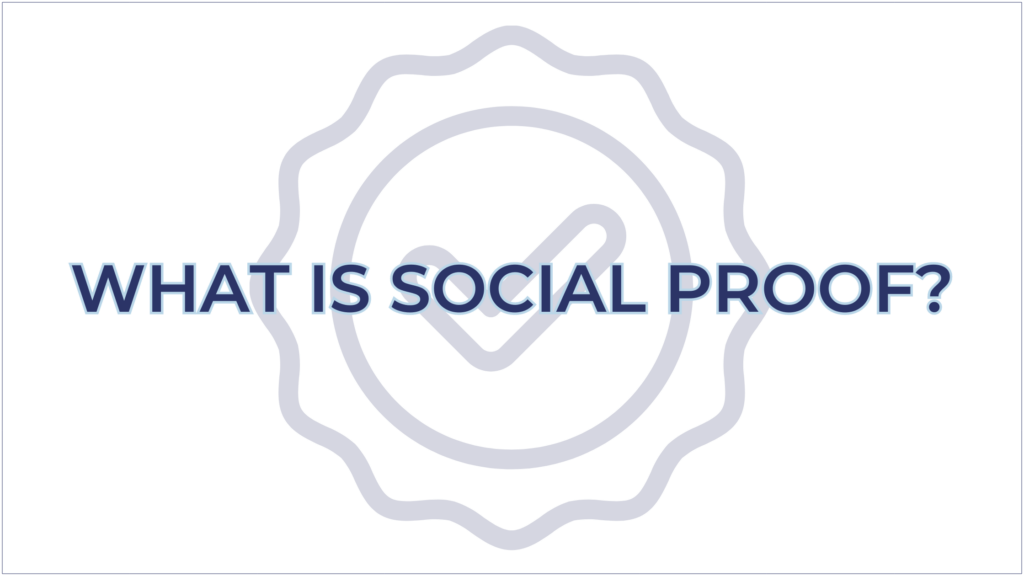
What is Social Proof?
Social Proof is the psychological phenomenon where people follow the actions, beliefs or behaviors of others, especially when they are uncertain or lacking information. In marketing, social proof is the use of third-party validation – testimonials, reviews, endorsements, case studies, and social media mentions – to build credibility with your audience.
Social proof is the idea that if others are endorsing or using a product or service, it must be good or valuable. This can influence potential customers to make a decision and take action—whether that’s to buy, sign up, or engage with your brand.
Examples of social proof:
- Customer Testimonials: Positive feedback from customers.
- Case Studies: In-depth stories of how a customer used your product or service to solve a problem.
- Online Reviews: Ratings and reviews from customers on Google, Yelp, Amazon etc.
- Influencer Endorsements: Recommendations from industry influencers or celebrities.
- Social Media Mentions: References or tags from customers or followers on social media.
Why is Social Proof Important?
Social proof is a marketing superpower that can change how your audience perceives your brand and make a decision. Here’s why social proof is important:
- Building Trust and Credibility: Social proof helps to build trust with potential customers by showing others have had a positive experience with your brand. According to Nielsen, 92% of consumers trust recommendations from friends and family over any other form of advertising. By showcasing testimonials, reviews and endorsements, you can build credibility and reduce the perceived risk of doing business with your brand.
- Influencing Purchase Decisions: Social proof plays a big role in influencing purchase decisions. A study by BrightLocal found 88% of consumers trust online reviews as much as personal recommendations. When potential customers see others have bought and are happy with your product, they are more likely to do the same.
- Boosting Conversion Rates: Including social proof in your marketing can increase conversion rates. For example, adding customer testimonials or trust badges to your landing pages can increase the chances of visitors converting into leads or customers. Social proof reassures potential customers they are making the right decision and, therefore, leads to higher conversion rates.
- Differentiating Your Brand: In a competitive market, social proof can help you stand out from the competition. By highlighting your positive reviews, customer success stories or endorsements from industry experts, you can be seen as a trusted and reliable option by potential customers.
- Encouraging User-Generated Content: Social proof can encourage your audience to create and share their own content about your brand—reviews, photos, or social media posts. This user-generated content is also additional social proof and increases your brand’s visibility and reach.
- Supporting SEO: Social proof, especially in the form of online reviews and user-generated content, can also support your SEO efforts. Positive reviews and mentions can improve your search engine rankings, making it easier for potential customers to find your brand online.
Working with a Content Agency to Build Social Proof
A content agency can help you use social proof in your marketing. They can help you gather and showcase customer testimonials, create compelling case studies and find influencer opportunities. They can also help you roll out social proof across your website, social media and other marketing channels to maximize its impact.
By working with a content agency, you can ensure your social proof is aligned with your marketing goals and communicates your brand’s value to your audience.
